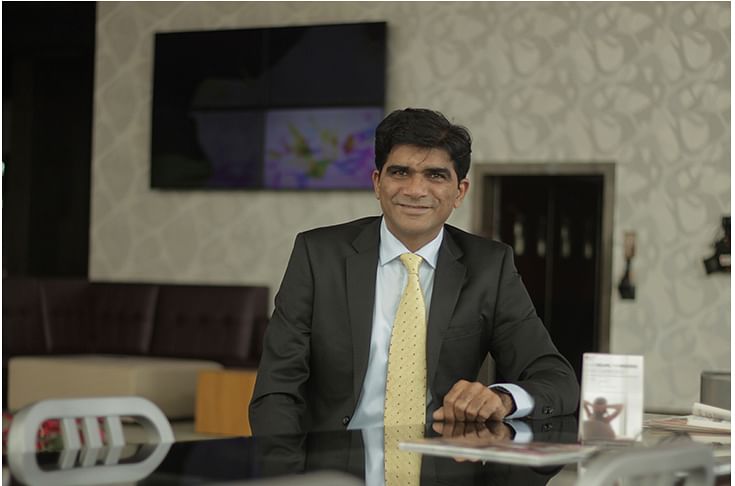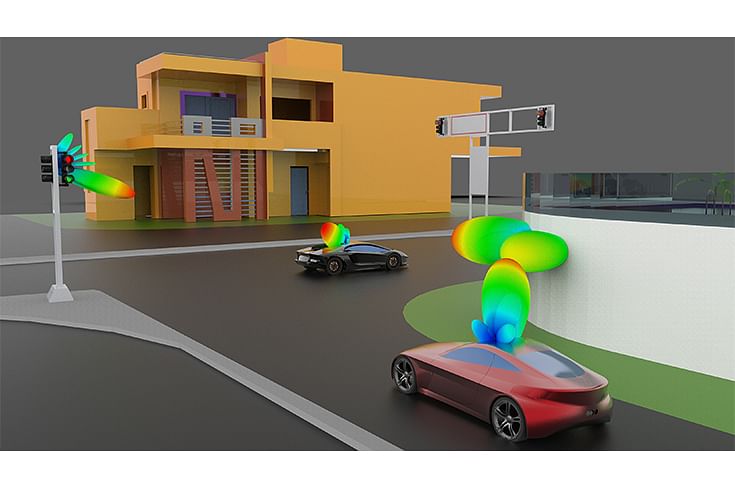Ansys collaborates with major Indian OEMs for developing EVs
As sustainable mobility and the EV megatrend rides high across the Indian automobile world, Ansys solutions are used across the life cycle of vehicles.
Ansys, the global engineering simulation and 3D designing software company is working with many major OEMs in developing electric vehicles in India. This is the direct outcome of the rising need for simulation in the ideation, designing and final execution of new age vehicles. As sustainable mobility and the EV megatrend rides high across the Indian automobile world, Ansys solutions are used across the life cycle of vehicles.

Rafiq Somani, Area VP, India and South Asia Pacific, Ansys said, “There was pressure on automobile OEMs with BS VI and now the EVs. There are quite a lot of developments happening on the internal combustion engines and it will be there for a few more decades. But, the bigger question is how do we reduce the carbon footprint and electric vehicles are an option. Though IC-engines will stay, we need to develop a newer option. Keeping this in mind, we are working on EV projects for Indian conditions with many major auto OEMs and two-wheeler companies. This includes the designing aspect and battery management.”
The company has an average 20 percent growth per year in India and it is one of the important markets for the software company. With a revenue of about $1.4 billion, they are also one of the fastest-growing companies in the world. According to Somani, the company follows a philosophy called ‘pervasive engineering simulation’ which is the usage of simulation during the entire life cycle of product development.
Elaborating the use of their products, Somani added that “It all begins right from where a concept of any new automotive vehicle originates. We will be throughout the journey of vehicle development. We will be in the design stage, in prototyping, analysis and more. A few examples where our products can be used are part optimisation, design optimisation, weight optimisation, and even crash analysis. We also play a role in the interiors of the vehicle too. So, the solution sets we have is for the entire life cycle of a vehicle. From the simplest product to the most complex one we have solutions.”
The India strategy
Given their growth numbers for India, Ansys’ India strategy calls for special attention, especially as some of their solutions are also being used in select defence programs. It is common knowledge that India is a completely different market when compared to many other countries globally. But the simulation company has a common standard software across the globe. He added that “Our products are global. Though we bring in standard software solutions for the globe, we work with Indian OEMs to bring customised products that suit the Indian market. Because to build the BSVI engine in India and to build one in Europe is a different ballgame. So, we have to work with our customers accordingly and make sure we deliver it. The customers here want the best and we give them. There are some products that are used by tier - I, tier - II suppliers here. So, they determine based on the quality of the product rather than the cost,” he mentioned.
Making trend the friend
As technology evolves, so does the possibility of developing a vehicle. A common man who owns a car demands more as new trends come in. Customer buying patterns are changing, many do not want to own a vehicle for a lifetime. This puts pressure on OEMs in creating a different vehicle with new ideas. This puts pressure on solution providers like Ansys too in terms of functionality and features. But Ansys keeps improving its algorithms constantly and optimises software regularly to be at par with the requirements.

Although this helps in the evolution of better products, there is still a need to create a prototype to test whether the vehicle will work in the real world. Rafiq explains, “Traditionally our engineers are trained to make a prototype to test everything. If anything goes wrong, they go back to the drawing board. One of our customers has made the 100% simulation in designing possible and have made an EV car with it. Trends are changing and they feel that they can bring a product without prototyping and go directly into production. But, for compliance reasons, testing and approvals we need to have a model. But, it is possible to make a product just with simulation.”
Ansys faces stiff competition, both in India and globally but Rafiq explains how they stay ahead of the curve. “There are three things where we differ from competitors. One, the technology aspect. We are technically far superior to our competitors and at the same time, we have all the physics analysis. We can help in mechanical fluids, electromagnetics, semiconductor embedded software or do particular simulation on that. Second is the support and service and third, is the value we give for the customer. They really see the value that our company brings in.”
Focus on research
Ansys has around 300 people working in its R&D centre in Pune and Bangalore. Outside US, the India centre is one among the biggest. “We are working on some new technologies for enterprise solutions and cloud technologies. A team is now getting formed and it will be in the Pune center.” he signed off.
RELATED ARTICLES
Cosmo First diversifies into paint protection film and ceramic coatings
The Aurangabad, Maharashtra-based packaging materials supplier is leveraging its competencies in plastic films and speci...
JSW MG Motor India confident of selling 1,000 M9 electric MPVs in first year
The 5.2-metre-long, seven-seater luxury electric MPV, which will be locally assembled at the Halol plant in Gujarat, wil...
Modern Automotives targets 25% CAGR in forged components by FY2031, diversifies into e-3Ws
The Tier-1 component supplier of forged components such as connecting rods, crankshafts, tie-rods, and fork bridges to l...






 13 Jan 2020
13 Jan 2020
 17453 Views
17453 Views





 Autocar Professional Bureau
Autocar Professional Bureau




